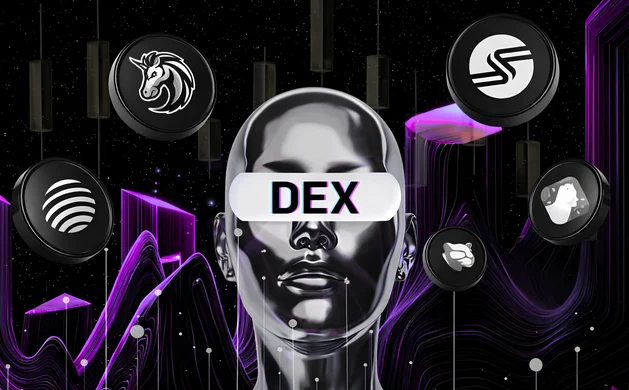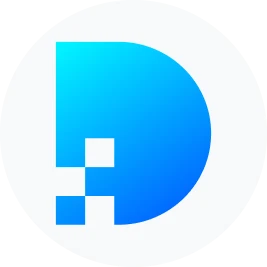Best Crypto Exchanges in Croatia in 2025
.webp)
Summary: Croatia has integrated crypto into its financial ecosystem while adhering to the European Union’s regulatory framework. The Financial Services Supervisory Agency (HANFA) oversees crypto exchanges, ensuring compliance with the EU Markets in Crypto-Assets (MiCA) regulations.
Below are the top five crypto platforms that support EUR deposits for Croatian users:
Gate.io is our top pick for investors in Croatia as the platform provides local customer support, facilitates Euro deposits and withdrawals, supports a diverse cryptocurrency selection and has a multilingual interface.
Available Assets
3,700+ Cryptocurrencies
Fees
0.1% Spot Trading Fee
EUR Deposit Methods
Bank transfer, Google Pay, Apple Pay & Cards
Top Crypto Trading Platforms in Croatia
As Croatia aligns with the European Union’s regulatory framework, exchanges operating in the country must comply with the Markets in Crypto-Assets (MiCA) regulations. Several platforms provide a safe trading environment for local investors, support EUR deposits, and offer Croatian interfaces. Below is a comparison table of the five best options in Croatia.
Exchange | Cryptocurrencies | Trading Fees | Deposit Methods | Key Features |
|---|---|---|---|---|
| Gate.io | 3,700+ | 0.2% | Bank Transfer, Apple Pay, Google Pay, SEPA, Cards | Spot, Futures, Launchpad, Copy Trading, NFTs |
| Binance | 350+ | 0.1% | SEPA, Zen.com, Bank Transfer, Cards, P2P | Spot, Futures, Binance Earn, Staking, Launchpad |
| Uphold | 300+ | 0.2% - 1.9% | Bank Transfer, Apple Pay, Google Pay, Cards | Multi-Asset, Uphold Vault, Staking, Uphold Card |
| Kraken | 360+ | Maker 0.16%, Taker 0.26% | Bank Transfer, SEPA, Credit/Debit Cards | Spot, Futures, Staking, 1:1 Reserves, Kraken Wallet |
| OKX | 350+ | Maker 0.08%, Taker 0.1% | Bank Transfer, Apple Pay, Google Pay, Debit/Credit Cards | Spot, Futures, Web3 Wallet, DeFi, NFTs, OKB Token |
1. Gate.io
Gate.io is a leading global cryptocurrency exchange, offering Croatian traders access to over 3,700 cryptocurrencies. Since its launch in 2013, it has become one of the most versatile platforms, supporting spot trading, margin trading, leveraged ETFs, perpetual contracts, and copy trading.
With a daily trading volume surpassing $5 billion, Gate.io is known for its deep liquidity, low-latency order execution, and competitive fee structure. Security and transparency are top priorities, featuring multi-signature cold wallets, real-time Proof of Reserves audits, and institutional-grade encryption.
The platform’s "Startup Launchpad" allows early access to new blockchain projects, while the "Pilot" feature highlights trending on-chain projects, giving traders a first-mover advantage. Croatian users can also benefit from staking, lending and borrowing services, plus an NFT marketplace, Gate Pay and Gate Card.
- Fees: Spot trading fees start at 0.2%.
- Supported Assets: Over 3,700 digital assets.
- Regulation & Licensing: Based offshore in Seychelles but available in Croatia.
- EUR Deposit Methods: Bank transfers, Apple Pay, Google Pay, SEPA, and debit or credit cards.

2. Binance
Binance is the world’s leading cryptocurrency exchange, serving over 260 million users across 180+ countries, including Croatia. Established in 2017, Binance has built a reputation for its low trading fees, high liquidity, and advanced trading tools. Users can access spot, margin, futures trading, and Binance P2P.
As a global platform, the interface can be used in Croatian and offers live customer support in the language. Binance is designed for all types of traders, from beginners using the simple buy-and-sell interface or demo trading to professionals leveraging API trading, automated bots, and high-frequency strategies.
Security and reliability are at the core of Binance’s operations. The platform employs multi-tier security measures, cold wallet storage, and real-time Proof of Reserves audits. Binance Earn allows users to stake, lend, and earn passive income on their crypto holdings, while Launchpad provides early access to projects.
- Fees: Maker/taker fees start at 0.1%, with discounts for BNB holders.
- Supported Assets: Over 350 cryptocurrencies.
- Regulation & Licensing: Registered as a VASP across Europe and holds a MiCA license.
- EUR Deposit Methods: SEPA, Zen.com, bank transfers, credit cards, debit cards, and Binance P2P.

3. Uphold
Uphold is a versatile trading platform that allows Croatian users to buy, sell, and hold cryptocurrencies, precious metals, and fiat currencies all in one place. Since its launch in 2015, Uphold has differentiated itself with simple one-step trading, allowing seamless conversions between any supported assets.
Uphold operates with 100% reserves, publishing assets and liabilities every 30 seconds for full transparency. Uphold also provides self-custody options through Uphold Vault, where users can manage their private keys while maintaining instant trading access.
Croatian investors can also earn staking rewards of up to 14.4% APY on over 19 cryptocurrencies. With additional features like limit orders, automated investing (UpHODL), and a crypto-backed debit card (Optimus Card), Uphold provides a comprehensive ecosystem for both passive and active traders.
- Fees: Zero trading fees and a spread fee of between 0.2% - 1.9%.
- Supported Assets: Over 300 digital assets, 4 precious metals, and 27 fiat currencies.
- Regulation & Licensing: Aligns with European regulations and is operational in Croatia.
- EUR Deposit Methods: Bank transfers, Apple Pay, Google Pay and credit or debit cards.

4. Kraken
Kraken is one of the most secure exchanges, operating since 2011 and serving over 10 million clients across Croatia and 190 other countries. The platform offers a wide range of trading products, including spot trading, margin trading (up to 5x leverage), futures contracts, and an OTC desk for high-volume transactions.
Security remains a top priority for Kraken, with Proof of Reserves audits, industry-leading encryption, and 24/7 customer support ensuring a safe trading environment. The platform also provides staking rewards of up to 21% APR, allowing users to earn passive income on assets like Ethereum and Solana.
Kraken’s API trading and Kraken Pro interface cater to algorithmic traders and institutions looking for high-speed execution and automated strategies. Its Kraken Wallet supports secure asset storage and on-chain transactions, while the newly launched Kraken Ink platform provides access for exploring DeFi.
- Fees: Maker fees start at 0.16% and taker fees at 0.26%.
- Supported Assets: Over 360 cryptocurrencies.
- Regulation & Licensing: Holds a MiCA license across Europe.
- EUR Deposit Methods: Bank transfers, SEPA, and credit or debit cards.

5. OKX
OKX provides Croatian traders with a comprehensive suite of trading and Web3 services. Since launching in 2017, it has grown to serve 30 million users across 180+ countries. Traders can access over 350 cryptocurrencies for spot trading, plus more than 300 futures contracts, options, and margin trading.
Users can manage their DeFi portfolios by connecting their OKX Wallet, enabling cross-chain and NFT trading. The platform’s integrated DApp browser offers seamless access to blockchain gaming, lending protocols, and staking opportunities across multiple networks, including OKT Chain.
The exchange offers institutional-grade trading infrastructure, API connectivity, and advanced risk management tools for professional traders. Clients benefit from TradingView integration, allowing them to analyze market trends with supercharged charts directly on the platform.
- Fees: Trading charge of 0.08%.
- Supported Assets: Over 350 cryptocurrencies.
- Regulation & Licensing: Regulated in Europe and is available in Croatia.
- EUR Deposit Methods: Bank transfers, Apple Pay, Google Pay, debit cards and credit cards.

Is Crypto Regulated in Croatia?
Yes, Croatia has implemented a clear regulatory framework for cryptocurrency, aligning with the EU’s Markets in Crypto-Assets (MiCA) regulation. The Croatian MiCA Implementation Act (Official Gazette no. 85/2024), implemented by the Croatian Financial Services Supervisory Agency (HANFA), sets specific requirements for Crypto Asset Service Providers (CASPs).
One notable aspect is Croatia’s “fit and proper” assessment for CASP leadership, which goes beyond basic reputation checks and requires demonstrable expertise. Croatia’s proactive approach offers regulatory clarity, lower operational costs than other EU countries, and a skilled workforce with a growing IT sector.
Additionally, cryptocurrency adoption is strong, with digital assets being accepted at retail stores, gas stations, hotels, and even university cafeterias. As Croatia integrates MiCA into its financial system, the country is positioning itself as a competitive hub for crypto services within the European Union.
How is Crypto Taxed in Croatia?
Croatia's approach to cryptocurrency taxation depends on the nature of an individual's or entity’s activities. The Tax Administration of Croatia oversees the taxation of digital assets, ensuring compliance with national tax laws and the broader European Union regulatory framework.
Here is a breakdown of cryptocurrency taxation in Croatia:
- Capital Gains Tax: Individuals who trade cryptocurrencies as part of private asset management are subject to a 10% capital gains tax and a municipal surcharge ranging from 0% to 18%, depending on the taxpayer’s residence.
- Income Tax: If cryptocurrency transactions are deemed frequent and speculative, earnings may be classified as self-employment income and taxed at progressive income tax rates of 20% or 30%.
- Corporate Income Tax: Companies engaged in crypto-related activities, such as trading, mining, or offering crypto services, are subject to Croatia’s corporate income tax rate of 10% (for revenues up to €995,000) or 18% (for revenues above this threshold).
Croatia's tax rates are generally lower than those of other EU nations, making it an attractive jurisdiction for crypto investors and businesses. However, staying informed about evolving tax rules is essential for compliance.
Cryptocurrency Adoption in Croatia
Croatia’s cryptocurrency market is steadily expanding, with a growing number of individuals and businesses embracing digital assets. The sector is projected to generate $5.8 million in revenue by 2025, highlighting increased engagement in crypto trading and investment.
Croatia’s crypto user base is expected to reach 170,090 individuals in 2025, equating to 4.3% of the population. Adoption is fueled by increasing acceptance of digital currencies in everyday transactions, with retailers, gas stations and hotels integrating crypto payments.

How to Buy Bitcoin in Croatia
Croatian investors looking to purchase Bitcoin can utilize regulated cryptocurrency exchanges that support Euro deposits and comply with the European Union's Markets in Crypto-Assets (MiCA) Regulation. Follow these steps to securely acquire Bitcoin in Croatia:
- Choose a Reputable Exchange: Select a trustworthy platform that operates within Croatia. Exchanges such as Coinbase, Binance, and Bitstamp are popular choices, offering compliant trading experiences.
- Complete Identity Verification: Register for an account and fulfill the Know Your Customer (KYC) requirements by providing a government-issued ID and proof of residence.
- Deposit Euros (EUR): Fund your exchange account using methods like bank transfers, credit or debit cards, or SEPA payments.
- Purchase Bitcoin (BTC): Navigate to the BTC/EUR trading pair, specify the amount of Bitcoin you wish to buy, review the transaction details, and confirm the purchase.
Croatian investors can confidently buy and hold Bitcoin using regulated exchanges while ensuring compliance with local financial regulations.
Final Thoughts
Croatia has built a secure and regulated crypto market, aligning with the EU’s MiCA framework. HANFA ensures compliance, offering investors clarity and protection.
With platforms like Gate.io, Binance, Uphold, Kraken, and OKX, Croatian traders have reliable options tailored to different needs, from beginner-friendly exchanges to advanced trading tools and Web3 access.

Written by
Tony Kreng
Lead Editor
Tony Kreng, who holds an MBA in Business & Finance, brings over a decade of experience as a financial analyst. At Datawallet, he serves as the lead content editor and fact-checker, dedicated to maintaining the accuracy and trustworthiness of our insights.

.webp)








